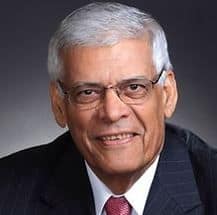OPEC General Secretary Abdullah al-Badri told oil producers not to panic at the recent slump in oil prices, a comment which appears to have halted the decline. He said low prices will stop many competing producers from making a profit, which will lead to diminished supply by the end of the decade.
OPEC pumps about 40% of the world’s oil. The following countries are members: Algeria, Angola, Ecuador, Iran, Iraq, Kuwait, Libya, Nigeria, Qatar, Saudi Arabia, United Arab Emirates, and Venezuela.
Mr. al-Badri said that the output of, for example shale gas will go down if oil stays at or goes below $85 per barrel. He pointed out that OPEC members have much lower costs and will benefit from a flushing out of competitors from the price fall.
Analysts took his comments as an indications that OPEC has no plans to reduce supply in order to get prices back up, and is unlikely to decide to do so when its members meet in November.
Some OPEC countries, such as Venezuela and Iran, are desperate for oil prices to rise again. In Venezuela, oil represents more than 90% of the country’s exports.
Low prices will flush out non-OPEC competition, says Mr. al-Badri. (Photo courtesy of Oil & Money conference)
Mr. al-Badri said at the London Oil & Money conference on Wednesday:
“If prices stay at $85, we will see a lot of investment, a lot of oil, going out of the market. About 65 percent of the producers, they have high costs. Not OPEC.”
Since hitting $115 per barrel in June, Brent Crude slumped to $84 two weeks ago. Today Brent is at around $87. Prices have fallen because of the huge increase in the supply of shale oil that has flooded supply in many markets.
Mr. al-Badri said:
“We do not see much change in the fundamentals. Demand is still growing, supply is also growing. OPEC is reviewing the situation. The most important thing is we should not panic. Unfortunately, everybody is panicking. We really need to sit, and think and see how this will develop.”
He did not specify whether OPEC should cut production or leave it where it is. Neither did he give any indication of what the lowest tolerable price might be before OPEC members should take action.
He added that OPEC’s average price by the end of this year will still be $100. “The fundamentals do not reflect this low price,” he added. He stressed that it is important to let the market settle down.
Investors and traders are awaiting US inventory data, which is expected to show saturated levels of oil supplies, as well as the conclusion of a policy-making meeting of the Federal Reserve in which it will probably terminate its latest bond-buying program.

